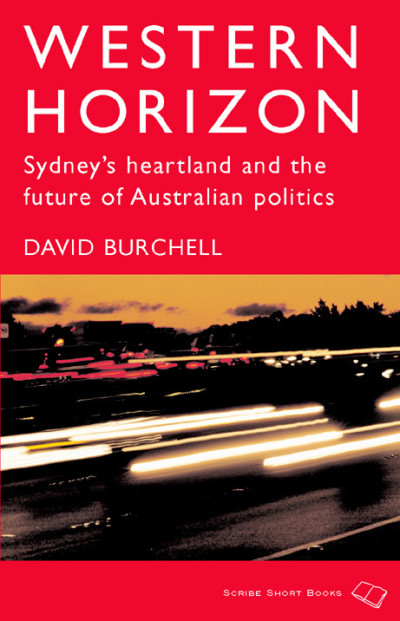‘In Let’s Talk About Hard Things, Anna Sale brings us fascinating conversations that feel both intensely personal and widely universal, then shows us how to start having them in our own lives. You will laugh, cry, nod in recognition, and by the end, feel like no topic is off limits when it comes to creating meaningful connection. I want to give a copy of this book to every family member, friend, and therapy patient I see.’
Lori Gottlieb, host of Dear Therapists podcast and New York Times bestselling author of Maybe You Should Talk To Someone
‘With tremendous empathy and thoughtfulness, Anna Sale models how to have the hard conversations — about love and grief and fear and so much else. Sale is a wise guide through the most difficult human terrain, and with her help, I'm now having conversations that before this book felt impossible.’
John Green, New York Times bestselling author of Turtles All the Way Down and The Fault in Our Stars
‘Anna Sale has a real gift for cutting through the white noise that so often overwhelms our most urgent, high-stakes conversations. She's teaching us how to listen to one another again. No one can save us from life's plot twists — and no one should — but page by page, sentence by sentence, Sale is committed to seeing us through.’
Saeed Jones, author of How We Fight For Our Lives
‘Let’s Talk About Hard Things is a gift. Filled with personal stories, complex emotions, and insight into the thorniest of interpersonal relationships, it is a balm, a challenge, and a celebration of our desire to be known in this world.’
Katie Couric
‘It’s not surprising to learn that Anna Sale applies the same compassion and thoughtfulness she displays as host to her writing, but it is thrilling all the same to quickly find Let’s Talk About Hard Things as inviting and comforting as any episode of Death, Sex, & Money. It’s not easy to open up about what makes us most uncomfortable, but the stories shared throughout the book and Sale’s excellent writing around them shows how vital it is that we make the effort. And while I still occasionally squirm over the reality that there is only so much that I can control in life, I am grateful for the tools Let’s Talk About Hard Things provides in helping me deal with such an unfortunate circumstance. I was already a fan of Sale's as a podcaster and person, but happy to now be a fanboy of Anna Sale the writer, too.’
Michael Arceneaux, New York Times bestselling author of I Can’t Date Jesus and I Don’t Want To Die Poor
‘Kind honesty — not the type where someone is shaming you, but loving communication of who you are — is one of the hardest things to talk about. As the recovery movement has advised many: "Say what you mean, but don't say it mean." Anna Sale's book provides beautifully written hope that that we can talk about hard things and that makes hard things easier. Or at the very least, spoken. It's like overhearing people like you in a support group in the coziest of book forms. It is thus a combination of my two favourite things: the vulnerability of shares in anonymous support groups and reading.’
Maria Bamford, comedian and writer
‘An empathetic debut … In addition to her own experiences, Sale offers no shortage of outside perspectives through interviews with former podcast guests, friends, and psychologists … Fans of Sale’s podcast will find a familiar guide in her reflective and introspective voice, and those encountering her for the first time will find this a comfort in hard times.’
Publishers Weekly
‘[E]xplores how we can talk about difficult situations in order to better connect with family, friends, and coworkers. This debut covers five topics — death, sex, money, family, and identity — which Sale explores via stories from her own life and by interviewing a racially and economically diverse group of people. Not to be mistaken for a self-help guide, Sale’s book also analyses the structural and cultural dynamics that impede meaningful conversations. Besides listeners of her podcast, this will appeal to any adult struggling to broach these topics.’
Chris Wilkes, Library Journal
‘Expanding on her hit WNYC podcast, Death, Sex, & Money, journalist Sale urges readers to have difficult conversations about their lives … There are stories of divorce, the sudden loss of a young partner, alienation from one's immediate family, secret investments gone wrong, and the pain of systemic racism. The book elaborates on content that aired previously on her show and includes new interviews with friends and celebrities. Infusing it all with memoir, Sale is generous when divulging her tricky chats of yore, and always quick to acknowledge the privilege that has allowed her — a cis, heterosexual, married, white parent — to have some difficult conversations but not others. This book is a road map to navigating these sorts of conversations with friends and family, and even includes specific phrasing to try; it also offers a sense of solidarity. Simply bearing witness to the struggles of strangers is sure to leave readers feeling less alone.’
Booklist
‘Absolutely brilliant … it’s amazing.’
Rebecca Seal, The Solo Collective
‘It’s not a how-to, but it’s instructive — and timely … many of us are realising that we’ve forgotten how to talk about the easy things, let alone the hard ones … As Sale shows us how supportive listening happens, and doesn’t scold anyone for not doing it better, we deepen our trust for her as a narrator: she’s dispensing not 'tough love' to the reader but empathy. By the end, we feel clearer, more known, and ready to proceed. In that way, her book is not unlike a good conversation with a friend.’
The New Yorker
‘There’s value in tackling the tough stuff we tend to shy away from, such as mortality, intimacy and finances … The text is a compelling exhortation to have difficult discussions … The book also smartly considers not just when to talk but when to listen and when to quit entirely. Sale resists simple answers and asserts that challenging conversations are not cure-alls, even with the best of intentions and tactics. It’s a well-worn message, but one that bears repeating.’
Nneka McGuire, The Washington Post






